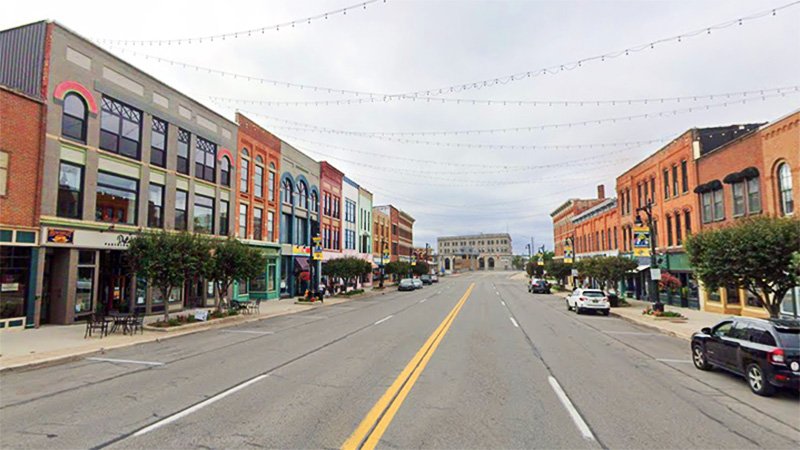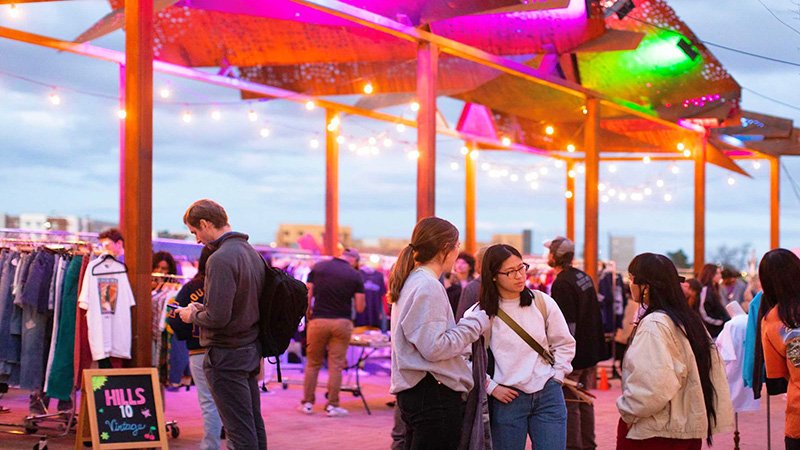The Messy City is a podcast that discusses urban planning and design issues. Its host, Kevin Klinkenberg, recently invited Strong Towns President Chuck Marohn to appear on an episode. Up for discussion: Chuck’s new book, sports stadiums, and Disney World.
Read MoreDo you know what it's like to have your housing be dependent on a country club membership that you can't afford? Renters across the United States do, as they're forced to pay for amenities like private parking spaces or pool access — even if they never use them.
Read MoreVison Zero is supposed to represent a commitment to achieving zero traffic deaths, but it often devolves into empty platitudes — even when public officials genuinely support it. That’s because they’re looking for solutions in the wrong place. Instead of blaming individual drivers, officials need to look at the root cause of most traffic deaths: the contradictory design of city streets.
Read MoreWhen COVID-19 put her career on pause, opera singer Ally Smither found a new passion: fighting highway expansion.
Read MoreHitsville U.S.A. is known for producing artists, recordings and a distinctive Detroit sound, but it also represents an important element of a strong city: mixed-use development. If Detroit hadn’t let Berry Gordy turn the first floor of his home into a recording studio, Motown Records might not exist today.
Read MoreBrian Boland is the founder of Bridge Forward Cincinnati, an advocacy group working to reclaim 19 acres of city land from urban highways by changing the design of the Brent Spence Corridor Project.
Read MoreIt’s natural to feel grief when local officials ignore calls to make your city a stronger and safer place. But while the grief is real, the changes your advocacy inspires are real too.
Read MoreTrying to decide on your next smallest step? Chances are, your city already has systems in place to address infrastructure concerns. Strong Towns member Danny Williams demonstrates how you can use those systems to produce positive change.
Read MoreSarasota County, Florida, is planning to use hundreds of millions of dollars to subsidize housing. But this money isn’t going toward low-income housing — it’s going toward road construction for gated communities.
Read MoreAn initiative that encourages people to use a bike instead of a car seems like a good thing, but does National Bike to Work Day actually encourage bikeability?
Read MoreEconomic productivity, cost-effectiveness and safety: stroads fail at all three. Advocates in Port Huron, Michigan, are working to make their city recognize that, so they can turn the dangerous Huron Avenue into a thriving community center.
Read MoreIncremental development is a low-risk, high-reward method of building a strong town. Here’s some do’s and don’ts to get you started.
Read MoreSpecial assessments are a way local governments can fund projects that will add value to homeowners’ property. When used to fund regular maintenance, though, they’re self-serving, irresponsible and unfairly target the poorest members of the community. It’s time to demand better.
Read MoreDo you have a favorite food truck? These micro businesses are often features of their communities, and they represent an important stage of incremental development. But strict zoning laws can put these businesses at risk. Hot Dog House FL learned this the hard way when parking mandates evicted them from their main operating location.
Read MorePublic art can do more than add personality and beauty to a space — it can change the way people behave, bring the community together and avoid the resistance other changes to city policy face. It’s time to stop overlooking this powerful and accessible tool and start making our towns stronger, one bucket of paint at a time.
Read MoreFrom arbitrary restrictions to overly harsh penalties, many homeowners associations (HOAs) do little to endear themselves to their neighborhoods. But your city may have more responsibility for these conditions than you realize.
Read MoreThe city of Cincinnati has pledged $200k to keep the popular bikeshare program Red Bike alive for another year. Joining us to talk about bikeshare programs and Red Bike’s financial difficulties is Bryce Mortera, a member of Civic Cincinnati. Are these programs really beneficial for residents? And if so, is there a more sustainable way to fund them than relying on sponsors?
Read MoreAt 75, she didn’t think she’d spend her time fighting freeways, but that’s exactly where Susan Graham finds herself. Founder of Stop TxDOT I-45, Graham has been fighting highway expansion in Houston for almost five years — and she’s nowhere near done. (Get to know Graham before she brings her knowledge to the national stage at the Strong Towns National Gathering, May 14-15!)
Read MoreAs an advocate, it’s easy to feel discouraged when you can’t prompt any big changes in your community, or even among your loved ones. Be patient: Just as many small actions can help cities grow incrementally stronger, the small impacts you have on others can lead to big changes over time.
Read MoreA new development in Tempe, Arizona, claims to be “the best place to live car-free in the U.S.” But while this development has many of the trappings of a strong town, it’s lacking one of the most important elements: resilience born from incremental development.
Read More



















